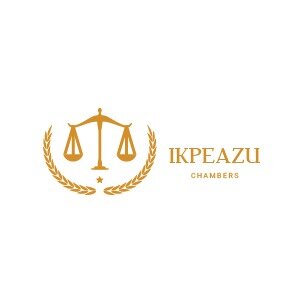Best Appeal Lawyers in Gwarinpa
Share your needs with us, get contacted by law firms.
Free. Takes 2 min.
List of the best lawyers in Gwarinpa, Nigeria
About Appeal Law in Gwarinpa, Nigeria
Appeal law in Gwarinpa, Nigeria, is the process by which a party seeks a formal change to an official decision made by a court. The Nigerian legal system allows for appeals from lower courts to higher ones, typically on the grounds of legal error, procedural mistakes, or issues of fact interpretation. The appeals process is guided by rules set out in the Nigerian Constitution, the Administration of Criminal Justice Act, and other relevant statutes depending on the jurisdiction of the case.
Why You May Need a Lawyer
Individuals may require legal help in the field of appeal for different reasons. Common situations include a conviction in a criminal case that the defendant believes was unjust, a ruling in a civil case that one party feels was based on incorrect legal interpretations, or improper application of the law. In these instances, a lawyer's expertise is crucial to navigate the complexities of the appeals process, from filing a notice of appeal to presenting arguments before an appellate court.
Local Laws Overview
In Gwarinpa, the appeal process is generally influenced by the federal laws that apply across Nigeria. However, there may be local procedures and regulations that impact the process. The key aspects of local laws relevant to appeal include the hierarchal structure of courts (Magistrate Courts, High Courts, and the Court of Appeal), deadlines for filing appeals, and protocols for submitting necessary documentation. Particularly, it is essential to understand grounds for appeal accepted by the local courts, as well as the procedural rules that must be strictly adhered to in order to avoid dismissal of the appeal.
Frequently Asked Questions
What is the time limit for filing an appeal in Gwarinpa?
Generally, the time limit is within 90 days for civil appeals and 30 days for criminal appeals from the date of judgment, but this may vary based on specific circumstances and court rules.
Can I represent myself in an appeal?
Yes, you can represent yourself, known as 'pro se' representation, but it is not recommended due to the technical nature of appeal cases.
What are the potential outcomes of an appeal?
An appellate court may affirm the lower court's decision, reverse it, amend the ruling, or remand the case back to the lower court for a new trial.
How is an appellate court different from a trial court?
Appellate courts review the application of law and procedures in the trial court, as opposed to determining the facts of the case.
Do I need new evidence for an appeal?
Appeals generally focus on the evidence presented in the original trial. New evidence is only admitted under exceptional circumstances.
What is the cost of filing an appeal?
The cost varies and includes court filing fees, possibly bonds, and other related expenses. Consult your lawyer for personalized information.
How long does the appeal process take in Gwarinpa?
The duration varies greatly from case to case but expect several months to over a year, depending on the complexity of the legal issues involved.
Can the decision of the Court of Appeal be further challenged?
Yes, unfavorable decisions of the Court of Appeal can often be challenged in the Supreme Court of Nigeria, which is the final court of appeal.
What are the grounds for an appeal?
Grounds for appeal include legal mistakes, procedural errors, misinterpretations of the law, or evidence that was not properly considered.
Can an appeal be settled out of court?
While rare in criminal cases, civil appeals may be settled out of court if both parties agree to a resolution.
Additional Resources
For those seeking an appeal in Gwarinpa, it is advisable to reach out to local legal societies or the Nigerian Bar Association for recommendations on appeal lawyers. The Legal Aid Council of Nigeria may also provide assistance if you're financially unable to afford private legal services. Additionally, the Federal Ministry of Justice can be a valuable source of information regarding the appeals process.
Next Steps
If you need legal assistance with an appeal, start by consulting a lawyer who specializes in appellate work. A skilled lawyer will help you understand the merits of your case, the likelihood of success, and guide you through the steps you need to take. Make sure to gather all necessary documents related to your original case and adhere strictly to the guidelines and deadlines for filing an appeal in Gwarinpa. Act promptly, as the window for filing an appeal is often limited.
Lawzana helps you find the best lawyers and law firms in Gwarinpa through a curated and pre-screened list of qualified legal professionals. Our platform offers rankings and detailed profiles of attorneys and law firms, allowing you to compare based on practice areas, including Appeal, experience, and client feedback.
Each profile includes a description of the firm's areas of practice, client reviews, team members and partners, year of establishment, spoken languages, office locations, contact information, social media presence, and any published articles or resources. Most firms on our platform speak English and are experienced in both local and international legal matters.
Get a quote from top-rated law firms in Gwarinpa, Nigeria — quickly, securely, and without unnecessary hassle.
Disclaimer:
The information provided on this page is for general informational purposes only and does not constitute legal advice. While we strive to ensure the accuracy and relevance of the content, legal information may change over time, and interpretations of the law can vary. You should always consult with a qualified legal professional for advice specific to your situation.
We disclaim all liability for actions taken or not taken based on the content of this page. If you believe any information is incorrect or outdated, please contact us, and we will review and update it where appropriate.








